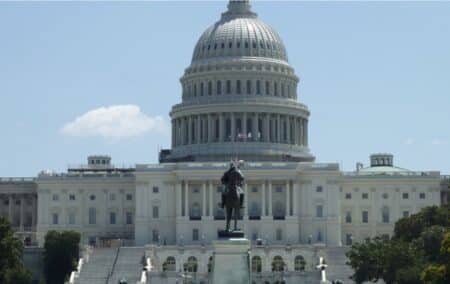Back in 1989, a few months before the Berlin Wall came down, economist John Williamson outlined what he thought was an agreed-upon formula for economic growth in developing countries.
Williamson, a soft-spoken English academic, presented ten principles, policy reforms intended to boost living standards in what was still called the third world. They were:
• Fiscal discipline
• Pro-growth public spending
• Tax reform
• Liberalising interest rates
• A competitive exchange rate
• Trade liberalization
• Encouraging foreign investment
• Privatization
• Deregulation
• Property rights
Far from being universally applauded, Williamson’s principles — which he called the Washington Consensus — ignited ferocious criticism. Some respected economists were still advocating industrialization as a third world priority. Unfettered trade, they argued, would destroy protected infant industries. They said the Washington Consensus, promoted by the World Bank and International Monetary Fund, was too market-oriented, refashioned Thatcherism and trickle-down economics. In fact, Williamson rejected Reagan’s monetarism, supply-side economics and call for smaller government. Of Thatcher’s economic prescriptions he embraced only privatization, which he called Thatcher’s gift to the world.
In its early years the Washington Consensus was bolstered by the collapse of the Soviet Union and its development model and the success of Deng Xiaoping’s market-friendly reforms in China. https://dailyfriend.co.za/2020/09/06/shenzhen-where-chinas-economic-miracle-began/
Deng’s reforms were launched in 1980 in the newly created ‘special economic zone’ in Shenzhen adjacent to Hong Kong. Here the old Soviet model of administered prices, state control of virtually everything, no private property, and tightly limited trade was abandoned and replaced with several of the market-friendly reforms later outlined by Williamson.
In areas where Deng’s reforms were implemented living standards rose and the reforms were allowed to spread throughout the country, lifting 800 million out of poverty. The World Bank calls the 9.5% average annual GDP rise that China achieved from 1980 through 2018 “the fastest sustained expansion by a major economy in history.”
Economists now spoke of the Beijing Consensus—a variation of Williamson’s principles to which was added export-led growth, innovation, experimentation, retention of state control of strategic industries, and authoritarian one-party rule.
Harvard University economist Dani Rodrik states what is now obvious, “economic growth is a precondition for improving living standards.”
On September 18th economist and former US treasury secretary Larry Summers offered what he called an update to the Washington Consensus. https://www.youtube.com/watch?v=7udKsziNqRQ Speaking at the Peterson Institute for International Economics where Williamson had unveiled his reforms, Summers defended globalization, adding that the United States and the world have benefited from China’s success.
Reflecting on the three decades since he was chief economist at the World Bank, Summers observed that the United States’ share of global GDP has held constant at about 20%. Globally, he pointed to extraordinary gains in reducing infant mortality, boosting literacy and eliminating poverty. China’s entry into the world economy, he said, benefited consumers by bringing down prices while Chinese foreign investment created jobs.
In two areas, Summers is critical of current US policy. Promoting particular industries with government investment will not halt the relative decline of US manufacturing. Secondly, mounting government debt has become unsustainable.
While Williamson’s list of policy reforms was aimed at developing countries, how does the United States score on these market-friendly principles? On trade liberalization, property rights and encouraging foreign investment, give the Americans high marks. On privatization, tax reform and deregulation they’ve done less well. On liberalized interest rates and a competitive exchange rate, they’ve done better. On fiscal discipline they get the lowest grade, zero.
Much has changed since 1989. The old formulation of a first, second and third world in economics no longer applies, since the second world, with the Soviet approach, has vanished. Without a second world there isn’t a third world. Developing countries are called emerging markets.
Socialism, meaning state ownership of the means of production, is in retreat. Its two leading practitioners — Russia and China — have become market economies. To be sure, there are variations within capitalism or market-oriented economies.
In Johannesburg at the former headquarters of the Institute of Race Relations, written on the wall of an interior corridor were the following words of Friedrich Hayek, whose 1944 book The Road to Serfdom was a fierce denunciation of both fascism and communism. The quote was:
“I regard the preservation of what is known as the capitalist system, the system of free markets and private ownership of the means of production, as an essential condition for the very survival of mankind.”
Looking today at Russia, China, Germany and indeed many emerging market economies, I think Hayek would be pleased.
The views of the writer are not necessarily the views of the Daily Friend or the IRR.
If you like what you have just read, support the Daily Friend.

